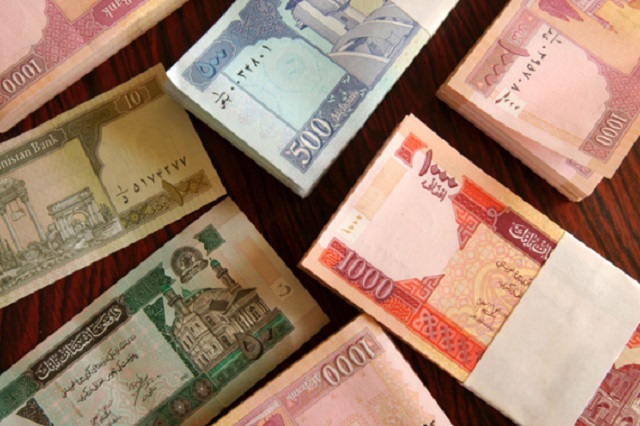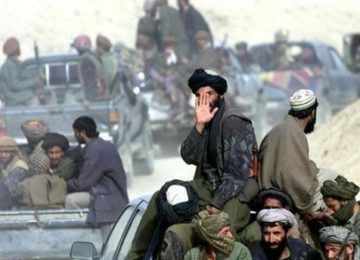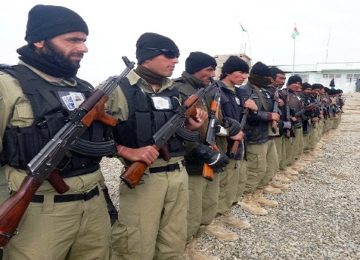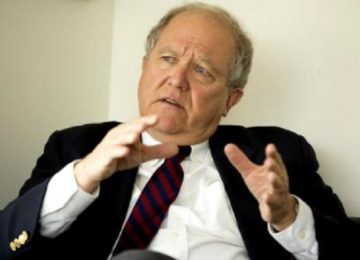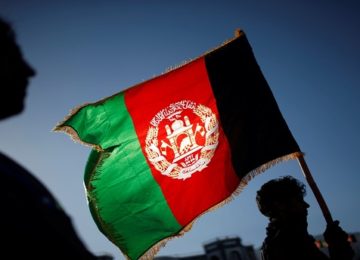March 26, 2021
When drawn into a conversation on trade, Mohammad Farhad Azeemi, Governor Balkh, told his guests something that our decision-makers and planner should have embraced and pursued much earlier; northern neighbours are pursuing peace in Afghanistan via economic coneectivity. They have told us we will not wait for peace but instead will incentivize peace through economic projects in Afghanistan, Azeemi said.
Balkh borders Uzbekistan and Tajikistan and is also operating the Hairatan Port to Uzbekistan. Hairatan, a small border town sits along the Amu Darya river in the Kaldar district of Balkh province. This river also denotes the Afghan-Uzbek border, both connected by the famous Afghanistan–Uzbekistan Friendship Bridge.
The governor candidly conceded the existence of capacity issues in Afghanistan when talking about the flow of transit and bilateral trade but sounded quite confident about the prospects following, what he called, “unprecedented confidence building measures” by Pakistan.
We envision Mazare Sharif as the conduit for Pakistan’s trade to and from central Asia via Afghanistan and would like to see direct flights between Mazari Sharif, Islamabad and Peshawar, Governor Azeemi said.
Also in Kabul, we heard similar emphasis on economic cooperation and trade connectivity. The new leadership sees this as a big incentive as well as leveller for engagement and continued relations with Pakistan.
The “business-economic cooperation” notion resonated in most meetings, particularly during our meetings with MPs at the Parliament House in the western DarulAman district.
Impact of Pakistan’s Outreach
Pakistan in recent months relaxed visa regime for common Afghans and addressed about 21 “concerns” regarding the bilateral and transit trade. This liberalization regime has also brought upon unusual pressure on Afghan officials – border immigration, customs and commerce in particular. This at times leads to congestion on the Afghan sides because of capacity and operational issues.
Ever since the arrival of Ambassador Mansoor Khan, visas being issued in Kabul and the four consulates – Jalalabad, Kandahar, Heraat and Mazare Sharif – have gone up to nearly 7000 a month – most of them one year-multiple entry. This also suggests improvement of facilities at the embassy and a more lenient processing of applications.
A professor at the American International University in Kabul – requesting anonymity – admitted that the visa policy alone has “ softened hearts and minds” and served as a neutralizer of the negative narratives on Pakistan.
Visa diplomacy now must translate into aggressive and prompt economic diplomacy.
For most of the time, Pakistan’s security prism prevented officials from weighing the dividends of a liberal visa policy and it is no rocket science; imagine the monetary benefits if the dominant majority of those 7000 Afghans being issued daily travels to Pakistan. It is over 200,000 Afghans visiting Pakistan every month, and about 2.5 million a year. This translates into financial dividend for the host country ; education, trade, health, tourism , business inter alia are all beneficiaries of Afghans traveling into Pakistan.
It is encouraging to see that Pakistani officials – both at the Ministry of foreign affairs, the National Security Division as well as the diplomatic missions in Afghanistan have begun applying the economic prism to the relations.
Courtesy: Matrix



